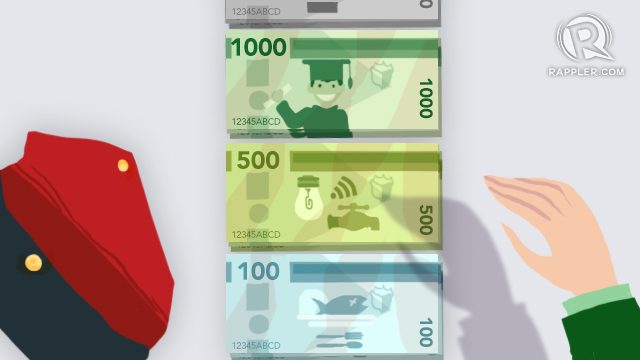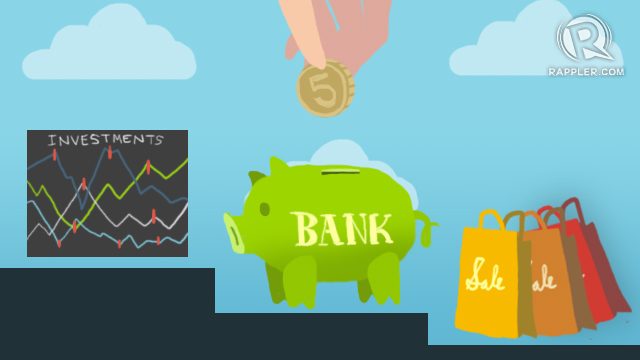SUMMARY
This is AI generated summarization, which may have errors. For context, always refer to the full article.

MANILA, Philippines – Your 20s were a defining part of your life. You had the freedom to explore and think about what you wanted to do with your life. Since you’re young, you had enough leeway to make a few mistakes.
Turning 30 is a big leap from all of that. As a wiser and more confident adult, your 30s is the time to step up, learn from the past, and take action. Your decisions now carry more weight and affect not just your future, but also your family’s.
When it comes to your finances, your 30s is the best time to take stock of what you have and what you hope to have in the future. It’s time to let go of the bahala na (anything goes) attitude and be proactive about saving, making your money grow, and achieving your major financial goals.
What financial lessons can you learn in your 30s? Here are some examples:
“[I learned] not to give in to these millennial fantasies of what a good life should look like, such as indulging in wanderlust or eating in new and cool restaurants all the time.” – Carla, Freelance Writer
When you first acquired financial independence, you probably made the most of it. Looking back, you might realize that you spent your money on things like expensive clothes, fancy food, or beach trips, because you wanted to enjoy the fruits of your hard work immediately.
When you hit your 30s, your priorities change. It becomes less about what your life should look like right now, and more about your long-term personal goals. The choice between hitting Boracay again vs placing a down payment on your first house becomes easier.

“Keep track of expenses and see where the money goes. Eat out less often, too.” – @holainatan via Instagram
Becoming money-savvy doesn’t happen overnight. Your 20s might be a time for hits and misses, but by the time you reach your 30s, you need to establish good habits so you can better manage your expenses.
An important lesson to learn at this life stage is how to set out and stick to a budget. Planning a budget in your 30s involves more strategic thinking than it would have just a few years before. On top of identifying your expenses, you also need to start planning for bigger milestones: a house, a new car, children’s tuition fees, and so on. Your 30s is also when you need to start saving up for your retirement.

“Save consistently. Strive to be debt-free. Live within your means. And most important of all, tithe.” – @CarinaChavente via Twitter
As you grow older, your responsibilities grow too – you have more bills to pay, family obligations to think about, and so on. Suddenly, the idea of spending all your money before the next payday feels selfish. In your 30s, being wise and saving your money isn’t just for your own sake. It’s for those who depend on you as well.
With more responsibilities on your plate, you need to have a substantial emergency fund. In case of unexpected things like if your child gets sick or you lose your job, your savings can act as a safety net to help you get through it. Your emergency fund should be equal to around 3 to 6 months worth of your spending budget.
Ideally, your savings should have started from the moment you got your first paycheck. Still, it’s not too late. If you’re struggling to build a savings habit, you can use an auto-investment facility. This will take a fixed amount (as low as P1,000) from your account on the same day every month and place it in an investment plan.
 “Savings before spending, investments before savings.” – @googlygooeys via Instagram
“Savings before spending, investments before savings.” – @googlygooeys via Instagram
It’s one thing to set money aside, but where will you put it? It’s nice to watch the numbers go up on a solid bank account, but savings alone won’t protect your wealth in the long run. In your 30s, your top priority should be investing your money.
If you’re new to investing, you can get started for as low as P5,000. But since you’re earning a higher salary in your 30s than in your 20s, you shouldn’t pass up on the opportunity to invest more and earn more.
For the 30-somethings who juggle a busy career with their family life, mutual funds are ideal. If you don’t have time to invest directly in stocks, mutual funds can grow your money with the help of trusted financial experts and without the need to constantly monitor the market.
Turning 30 is a big milestone, but when it comes to achieving your financial goals, it’s just the beginning. How you manage your money now will impact you and those around you as you reach your 40s, 50s, and beyond.
What other money lessons did you learn in your 30s? Share them with us below. – Rappler.com
ALFM Peso Bond Fund can help you take that big leap of making bigger financial decisions. All you need is as little as P5,000 to level up to becoming an investor. It’s never too late to start investing. Message ALFM Mutual Funds on Facebook now!
Add a comment
How does this make you feel?

There are no comments yet. Add your comment to start the conversation.